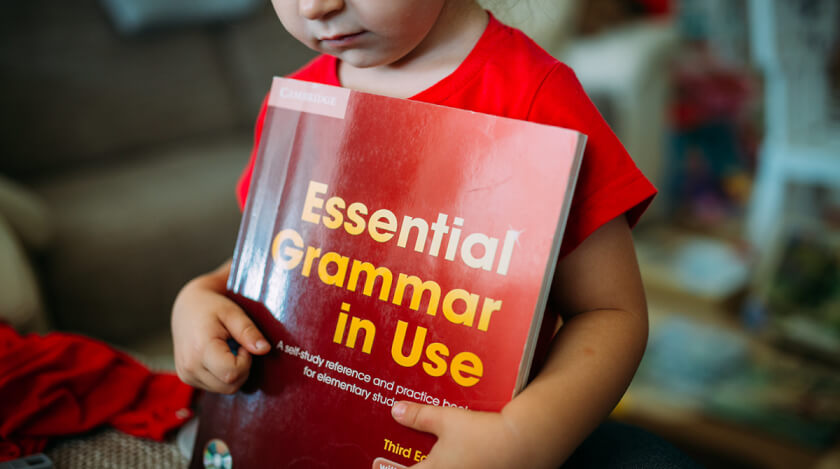
I could stand in front of my class of eight-year-olds and issue in English a chain of detailed instructions with words the students didn’t know three-fourths of, and yet if any of the children said they didn’t understand, immediately the others would turn to the child and, in tones of exasperation, one of them would give an exact replication in Spanish of what I’d said. Not all my young students were capable of simultaneous translation, but a few always managed it with no lag or sign of effort. How was the trick done? How was a mush of English sounds turned so adroitly into utterly confident Spanish? How was a muddy trail turned into smooth terrain?
I don’t know, but I learned to count on it. By holding a paper, tapping a pencil against it, pointing at the board while I spoke—through these hints, I knew they’d get the message. One of my favorite students, my little beetle, certainly always did. Small and compact, she managed with a crooked smile or a pout or a twist of her lips to express a million things, including impatience at her fellow’s stodgy comprehension. With a shake of her head and a shrug, she seemed to be saying, when the other repeated what my beetle had just rendered in Spanish, “What else!”
What else indeed! I felt for that other, slower student who expected each step along the way to be clearly marked. I understand the failure to comprehend the obvious, and the failure to intuit or guess. The inclination to dig for subtleties of meaning when none are present or, at least, none of any importance. To think that because the words make no sense, there’s no sense behind them. To circle and circle small contradictions, to bay like a hound wanting praise though the quarry is not the fuzzy footprint but the living, breathing meaning, to be found at the end of the trail, not dug for at the first sign, especially an unintelligible sign. To resist, and in protest not even join in the chase. To ask, “What’s the point?” To announce, “I don’t understand.” As a teacher, I said, “Trust me.” As a student of my own life, out on a run or driving across town or buying a plane ticket home, I try in imitation of my fantastically smart and eager and involved students to hear through the words, beyond them, and make sense, not just expect to find it. And that’s in English or Spanish.


